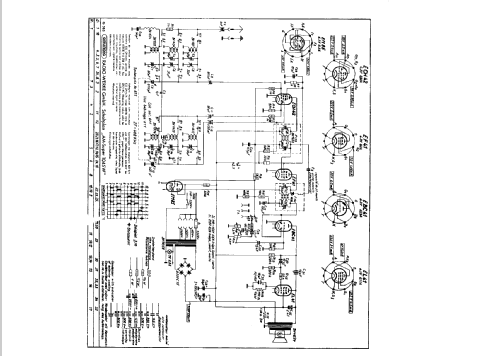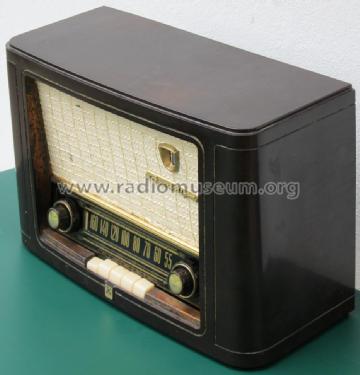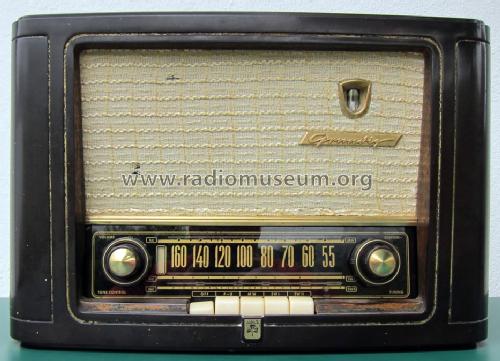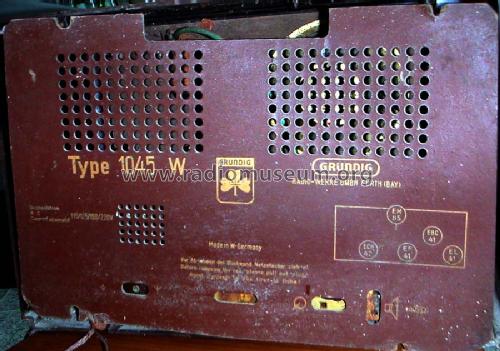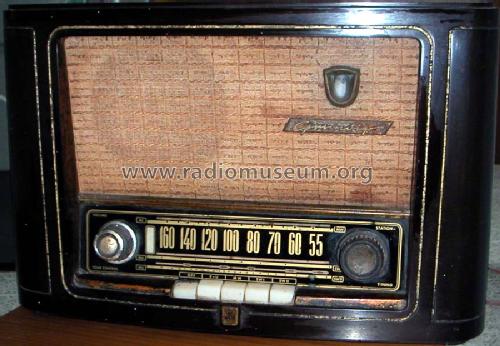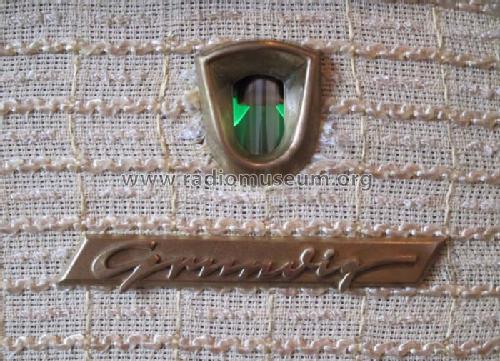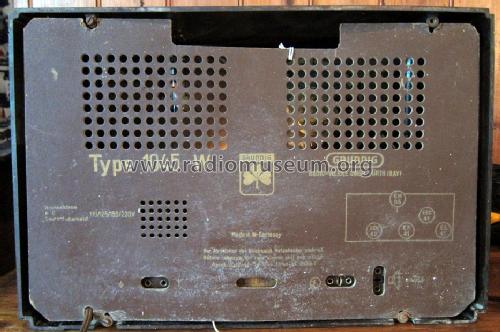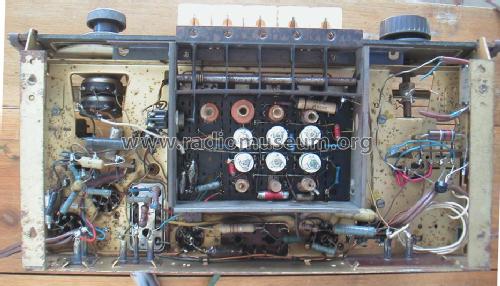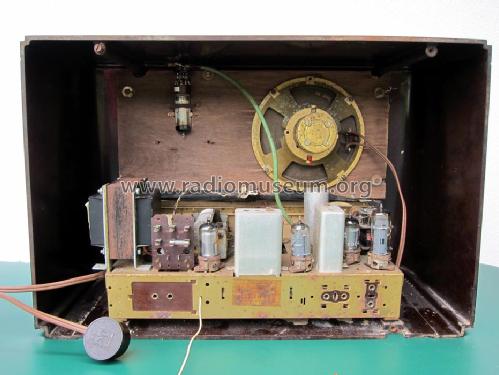- Country
- Germany
- Manufacturer / Brand
- Grundig (Radio-Vertrieb, RVF, Radiowerke); Fürth/Bayern
- Year
- 1954/1955
- Category
- Broadcast Receiver - or past WW2 Tuner
- Radiomuseum.org ID
- 87102
-
- alternative name: Grundig Portugal || Grundig USA / Lextronix
Click on the schematic thumbnail to request the schematic as a free document.
- Number of Tubes
- 5
- Number of Transistors
- Semiconductors
- B250C75
- Main principle
- Superheterodyne (common); ZF/IF 468 kHz; 2 AF stage(s); Export model
- Tuned circuits
- 6 AM circuit(s)
- Wave bands
- Broadcast plus 2 Short Wave bands.
- Power type and voltage
- Alternating Current supply (AC) / 110; 125; 150; 220 Volt
- Loudspeaker
- Permanent Magnet Dynamic (PDyn) Loudspeaker (moving coil)
- Material
- Wooden case
- from Radiomuseum.org
- Model: 1045W - Grundig Radio-Vertrieb, RVF,
- Shape
- Tablemodel with Push Buttons.
- Dimensions (WHD)
- 463 x 304 x 215 mm / 18.2 x 12 x 8.5 inch
- Notes
- Exportgerät
Wellenbereiche:
MW: 510-1620 kHz
SW1: 2-6 MHz
SW2: 6-17 MHz
- Mentioned in
- -- Original prospect or advert
- Author
- Model page created by Carlos A. Pieroni-García. See "Data change" for further contributors.
- Other Models
-
Here you find 6245 models, 5488 with images and 4243 with schematics for wireless sets etc. In French: TSF for Télégraphie sans fil.
All listed radios etc. from Grundig (Radio-Vertrieb, RVF, Radiowerke); Fürth/Bayern
Forum contributions about this model: Grundig Radio-: 1045W
Threads: 1 | Posts: 8
Fellow Radiophiles,
I am making good progress in the restoration of the Grundig 1045 that belonged to Andre de Melo in my youth. His son Fernando owns it now, and my restoration preserves the radio and fond memories with these friends. I remember hearing this radio during the late 1960's, while it played the soccer broadcast in the tavern that Andre owned next to his general store.
After replacing the rotted out power transformer with a replacement that was given to by RMORG member Ross Hochstrasser, and replacing three resistors and the original electrolytics, the radio is working again. I have another couple of weeks while I am in vacation at Furnas in the Azores to check out it's performance. The only weak tubes were the IF and tuning eye, but I replaced all just the same, while keeping the non-original old ones with the radio.
Ross also supplied me with a set of original knobs, which look great on the radio. I cleaned the three front brass pieces with the american Twinkle copper cleaning creme.
I have two questions:
1-What protective finish should I apply to the brass pieces in this very humid climate?
2-How should have remove the speaker cloth for cleaning?
Is the glue a contact type that softens with alcohol or acetone, or is it a wood glue that would soften with white vinegar and water?
Perhaps the cloth can be cleaned in place, but how?
Is there a danger of shrinkage? As seen in this photo, some shrinkage can be tolerated.
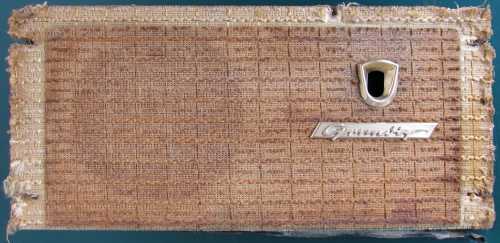
Regards,
-Joe
Joe Sousa, 22.Jul.10
